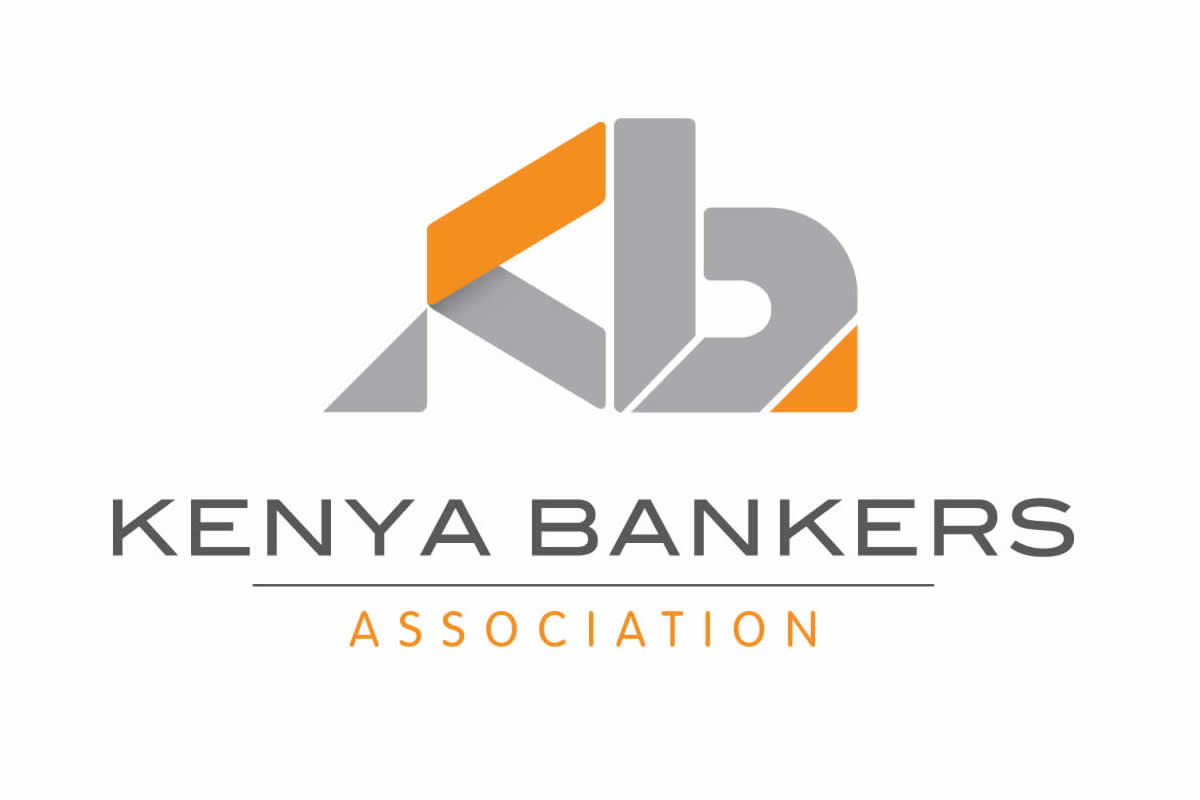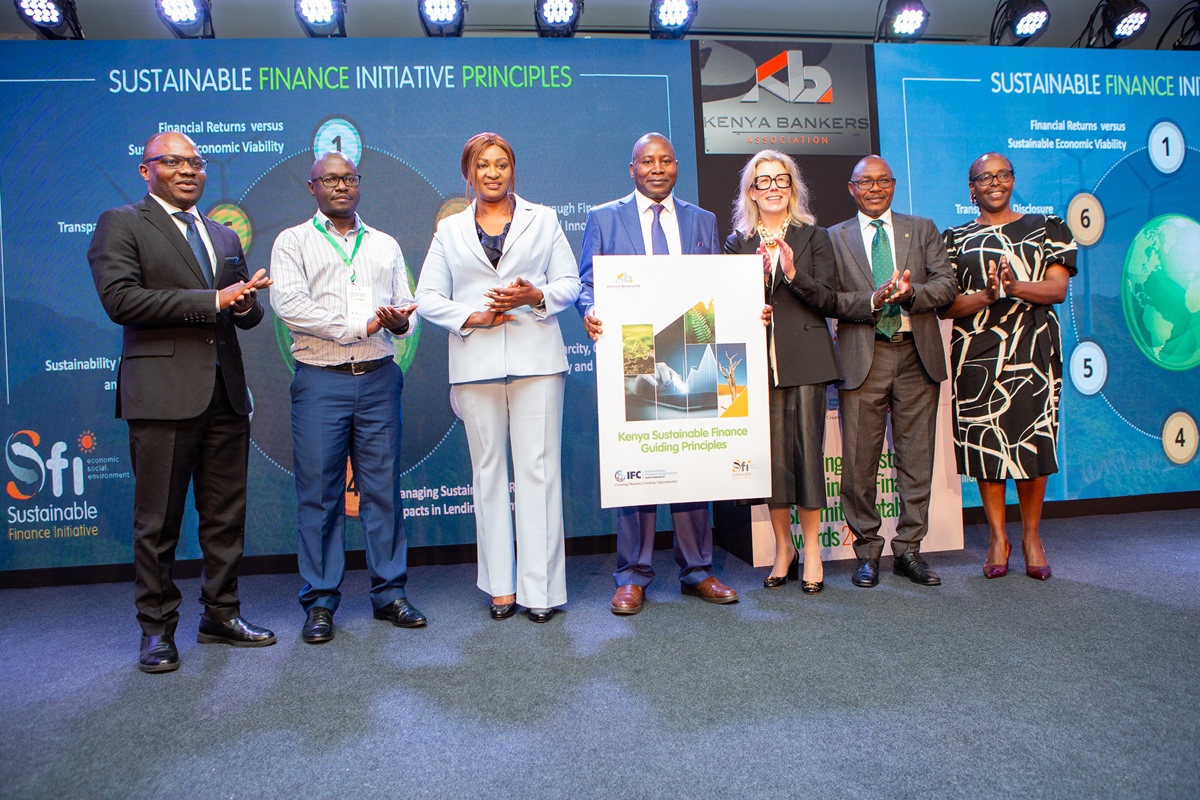Nairobi, 21st September 2022 – The Co-operative Bank of Kenya has emerged as the overall winner in the 2021 Sustainable Finance Initiative Catalyst Awards convened by the Kenya Bankers Association (KBA), the umbrella body of the banking industry.
An independent judging panel also settled on Equity Bank Kenya for the second overall place and KWFT for the third position overall.
In the individual categories, Equity Bank Kenya was declared the winner as the Best Bank in Financing Small and Medium-sized Enterprises, Sidian Bank came in second and Co-operative Bank of Kenya emerged third.
In the category assessing bank activities in Financing Commercial Clients, Co-operative Bank of Kenya took first place, while ABC Bank took second place, and Equity Bank of Kenya, third place. The banks were recognized for financing commercial clients’ business operations, projects, or investments in a manner that created long-term value leading to growth, efficiency, innovation, and expansions to new markets for the client.
Meanwhile, Standard Chartered Bank of Kenya emerged the winner as the bank with best case study in Bank Operations. Absa Bank came in second, while I&M Bank came in third place. They were recognized for their commitment and investment in ensuring optimal management of financial resources and natural capital through productivity programs and efficient utilization of operational resources and energy such as paper, water as well as waste management including electronic waste.
KWFT was declared as the winner for the best bank in promoting gender inclusivity in the industry. SBM Bank took second place, while Equity Bank Kenya took third place. The Award recognized banks for their strides in encouraging women to be formally included in the financial services sector, creating opportunities for their female employees to take up leadership roles, and developing products geared towards empowering female entrepreneurs.
The Awards judging panel recognized Co-operative Bank of Kenya as the Most Innovative Bank, followed by Standard Chartered Bank of Kenya with Equity Bank of Kenya coming in third. The Award recognized banks for their utilization of technology to reach untapped and marginalized market segments. It also focused on ways firms have innovated and enhanced their service delivery to customers.
In light of the strides taken to cushion households and the economy from the health crisis, a new category was introduced to assess the best bank response to the COVID 19 Pandemic. Equity Bank Kenya emerged first in this category, followed by Co-operative Bank of Kenya and KCB Group took third place. In the Best in Sustainable Finance category, KCB Group took the first position, Co-operative Bank of Kenya emerged second place with Equity Bank Kenya taking third place.
The SFI Catalyst Awards launched in 2016, recognise banks that practice Catalytic Finance that Impacts Industry, Economy and Society. This year, with the funding support from the International Union for Conservation of Nature (IUCN), they sought to honour institutions that had embedded the industry’s Sustainable Finance Guiding Principles in their core operations and lending practices. The principles, designed to articulate the industry’s aspirations of creating long-term value for the economy, the environment and society at large, aim to highlight the sector’s leadership and innovation while reinforcing the role banks, play towards sustainable development.
The Awards finalists included: NCBA, Stanbic Bank, National Bank of Kenya, Family Bank, and Credit Bank.
“Through entrenching sustainable finance practices directly into bank’s core day-to-day operations, we can fundamentally contribute to the fight against climate change, social exclusion and economic inequality in the country,” said KBA Chief Executive Officer, Dr. Habil Olaka. “The winners of the Catalyst Awards have demonstrated that the industry is taking steps to ensure that their investment activities are carried out responsibly in line with international best-practices,” he added.
“As IUCN, we congratulate the various banks for the incredible success registered ensuring inclusion, efficiency and sustainability through their operations. IUCN is proud to partner with Kenya Bankers Association to promote the critical role that the private sector, including banks and insurance companies play in determining how biodiversity is used and conserved. There are clear benefits to businesses in improving environmental and climate risk management performance, such as reduced costs, improved innovation, and increased likelihood of regulatory approval. Platforms such as this Award ceremony are essential for acknowledging the exemplary strides made by the banking sector and providing an opportunity to inspire and learn from each other,” said IUCN Regional Director for Eastern and Southern Africa Mr. Luther Anukur.
Global Compact Network Chairperson and Sasini Group Managing Director, Mr. Martin Ochieng graced the event as the chief guest. He said, “It is important for financial sector players to recognize that while economic viability is vital, the time has come for the financial sector to adopt and implement a more inclusive business culture that also factors in variables such as environmental impact and social concerns in the overall finance equation.”
In the course of the three and half-months exercise, 43 entries were submitted by 16 financial institutions. The judging panel for the Sustainable Finance Catalyst Awards constituted of the following:
- Kaori Yasuda – Regional Strategic Partnership and Programme Development Coordinator, IUCN
- Dan Ndenga – Co-founder of Miltech (Returning judge)
- Nuru Mugambi – Responsible Investment and Financial Inclusion Policy Advisor
- Peter Muriu – Senior Lecturer, University of Nairobi (Returning judge)
- Jackson Kiplagat – Head of Conservation, WWF – Kenya (Chairperson)
- Dorcas Beryl Otieno – UNESCO Chair holder at the Kenyatta University
Notes to the editor
About the Sustainable Finance Guiding Principles & Industry Standards
The Kenya banking industry in March 2015 adopted the Sustainable Finance Initiative (SFI) Guiding Principles that guide the banks in balancing their business goals with the economy’s development priorities and socio-environmental concerns. The SFI Principles that were officially launched by the Central Bank of Kenya Governor Dr. Patrick Njoroge on 1st December 2015 are grounded in three main priorities, namely equipping the financial services sector to perform optimally in the area of comprehensive risk management; enhancing business practice, leadership and governance; and promoting industry growth and development by fostering a culture of innovation and inclusivity enabled by new technology. The Principles draw from and harmonize several global best practice standards, including the Equator Principles, IFC Performance Standards, Nigerian Sustainable Banking Principles, African Development Bank (AfDB) Green Growth Policy, Global Reporting Initiative (GRI) Reporting Guidelines, UNEP Finance Initiative (UNEP-FI) Guidelines, UN Global Compact Principles, ISO 26000:2010, and Kenya’s National Climate Change Policy (draft).
About the Kenya Bankers Association
KBA (www.kba.co.ke) was founded on 16th July 1962. Today, KBA is the financial sector’s leading advocacy group and banking industry umbrella body that represents total assets in excess of USD 50 billion. KBA has evolved and broadened its function to include advocacy on behalf of the banking industry, and championing financial sector development through strategic projects such as the launch of the industry’s first P2P digital payments platform PesaLink. In line with the Government’s policy on public-private partnerships, KBA and Central Bank of Kenya have implemented key projects such as modernization of the National Payments System through the Automated Clearing House, implementing the Real Time Gross Settlement System (RTGS), and the Kenya Credit Information Sharing Initiative. The KBA members are comprised of commercial banks and deposit taking microfinance banks.


